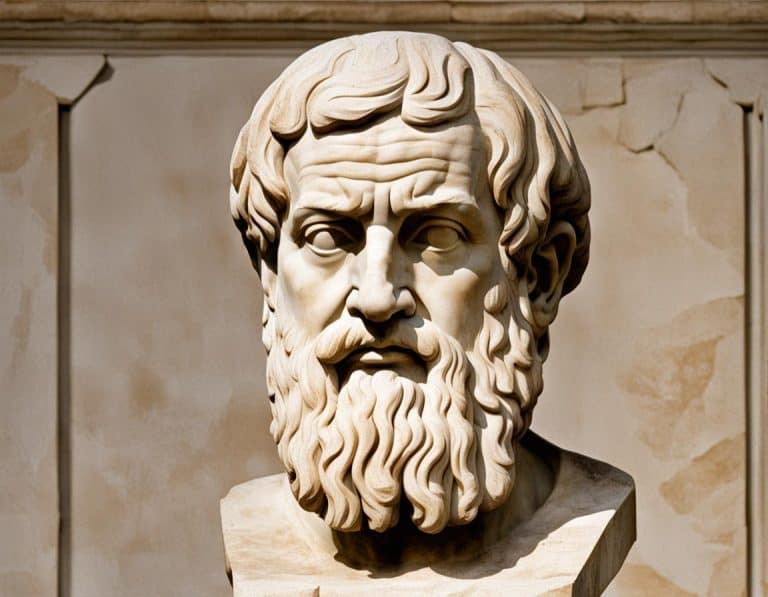The Role of Dialogue in Plato’s Educational Methods
Plato, a renowned philosopher from ancient Greece, believed that dialogue played a crucial role in his educational methods. His famous work “The Republic” showcases the power of engaging in discussions to pursue truth and knowledge. Through dialogues between characters like Socrates and his students, Plato demonstrated how questioning, reasoning, and debating can lead to a deeper understanding of complex ideas and concepts.
In Plato’s view, dialogue creates an interactive and dynamic learning environment where individuals are encouraged to critically analyze their beliefs and perspectives. By engaging in conversations with others, students can refine their thoughts, challenge assumptions, and develop a more nuanced understanding of the world around them. This dialogical approach to education fosters intellectual growth, promotes a spirit of inquiry, and cultivates a sense of collaborative learning that is essential for personal and intellectual development.
Importance of Dialogical Learning in Plato’s Pedagogy
Engaging in dialogical learning was a fundamental aspect of Plato’s pedagogical approach. By encouraging discussions and debates, Plato believed that students could actively engage with the material, ultimately leading to a more profound understanding of the concepts being taught. Through dialogue, students were challenged to think critically, question assumptions, and explore different perspectives. This interactive process not only enhanced intellectual growth but also nurtured the development of essential reasoning skills crucial for a well-rounded education.
In Plato’s dialogues, we witness the Socratic method in action, where teachers act as facilitators rather than authoritative figures. This collaborative approach fostered a sense of autonomy and intellectual independence among students. By encouraging them to articulate their thoughts and engage with others in meaningful discourse, Plato aimed to cultivate not just knowledge but also wisdom. Dialogical learning, therefore, served as a cornerstone of Plato’s educational philosophy, emphasizing the importance of active participation, critical inquiry, and the pursuit of truth.
Application of Plato’s Ideas in Contemporary Education
Plato’s philosophical ideas on education continue to resonate in modern teaching practices, emphasizing the importance of critical thinking, self-reflection, and moral development. By adapting Platonic principles to contemporary education, educators can create a more holistic learning environment that fosters intellectual growth and ethical awareness among students. Plato’s emphasis on the development of virtues, such as courage, wisdom, and justice, provides a strong foundation for shaping individuals who are not only knowledgeable but also morally upright.
In today’s fast-paced and interconnected world, the dialogical approach to learning advocated by Plato remains relevant and valuable. Encouraging students to engage in meaningful discussions, challenge conventional wisdom, and explore diverse perspectives can cultivate their intellectual curiosity and deepen their understanding of complex issues. By incorporating dialogical learning into the curriculum, educators can empower students to think critically, communicate effectively, and navigate the ethical dilemmas they may encounter in their personal and professional lives.
Adapting Platonic Principles to Modern Teaching Practices
Plato’s educational principles, grounded in the importance of questioning, critical thinking, and dialogue, continue to resonate as timeless pillars of effective teaching. By adapting Platonic ideas to modern educational practices, educators can foster a more engaging and interactive learning environment. Incorporating the Socratic method, where students are encouraged to question, discuss, and debate, allows for a deeper understanding of complex concepts and promotes intellectual growth. This approach not only cultivates a sense of curiosity and autonomy in learners but also promotes the development of essential skills such as communication, analysis, and problem-solving.
Moreover, Plato’s emphasis on the pursuit of truth and knowledge as the ultimate goal of education remains relevant today. Modern teaching practices can benefit from integrating Platonic ideals of truth-seeking and the exploration of fundamental principles. By encouraging students to seek understanding beyond surface-level information and rote memorization, educators can instill a lifelong love for learning and a deeper appreciation for the complexities of the world. As we adapt Plato’s educational principles to contemporary contexts, we uphold the spirit of inquiry and intellectual rigor that have defined his legacy throughout history.
Plato’s Views on Virtue and Education
Plato, a prominent figure in ancient Greek philosophy, believed that education should not only focus on acquiring knowledge but also on cultivating virtues. In his view, the purpose of education was to shape individuals who would lead a just and virtuous life. According to Plato, true education should instill moral values and develop a sense of wisdom and integrity in students.
For Plato, the connection between virtue and education was inseparable. He argued that education should aim to build character and promote ethical behavior. In his ideal society, education played a crucial role in creating individuals who possessed not only intellectual abilities but also moral excellence. Plato believed that a well-rounded education that focused on virtues such as courage, wisdom, temperance, and justice was essential for the overall development of an individual.
Connection Between Virtue Ethics and Educational Development
Plato’s profound insights into virtue ethics have had a profound impact on educational development throughout history. Central to Plato’s philosophy is the concept that a virtuous individual possesses the wisdom to discern what is truly good and just. This emphasis on cultivating moral excellence aligns closely with the goal of education to not only impart knowledge but also to nurture character and integrity in students.
By integrating virtue ethics into educational practices, teachers can instill values such as honesty, integrity, and compassion in their students. Plato believed that education should focus on molding individuals who possess the moral fiber to make ethical decisions and contribute positively to society. This holistic approach to education, which combines intellectual growth with the development of virtuous character, remains relevant in modern educational settings striving to nurture well-rounded individuals.
Related Links
10 Essential Aspects of Plato’s Educational Legacy
Why Plato’s Educational Legacy is Essential for Educators
